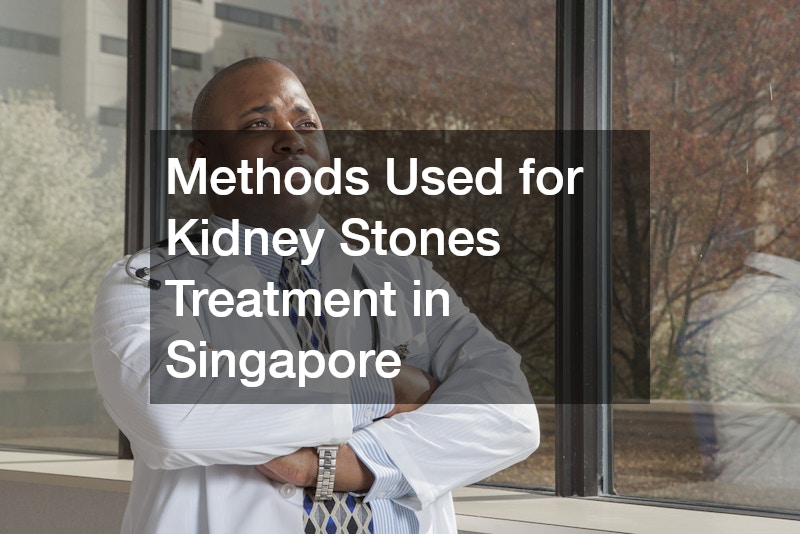Kidney stones are a common and painful condition affecting many individuals. These small, hard deposits formed in the kidneys can cause significant discomfort and complications if not treated promptly. In Singapore, a variety of effective treatment methods are available to manage and eliminate kidney stones. Understanding these treatment options can help patients make informed decisions about their health. Here are some of the primary methods used for kidney stones treatment in Singapore.
One of the most common methods for treating kidney stones is medication. For smaller stones that can pass naturally, doctors often prescribe pain relief medications and alpha-blockers.
Alpha-blockers help relax the muscles in the urinary tract, making it easier for stones to pass. This conservative approach is typically the first line of treatment for patients with small stones, as it can alleviate discomfort while allowing the body to expel the stones naturally. Monitoring the stone’s progress through regular check-ups is essential to ensure it is passing safely.
For larger stones that cannot pass on their own, extracorporeal shock wave lithotripsy (ESWL) is a popular non-invasive treatment option. This method utilizes high-energy shock waves to break kidney stones into smaller fragments, which can then be easily passed through the urinary tract. The procedure is performed on an outpatient basis, meaning patients can return home the same day. ESWL is generally well-tolerated and has a high success rate, making it a preferred choice for kidney stones treatment in Singapore, especially for stones that are too large or located in challenging positions.
In some cases, ureteroscopy may be recommended for kidney stones treatment in Singapore. This procedure involves the use of a thin, flexible tube called a ureteroscope, which is inserted into the urethra and guided up to the kidney. The doctor can then visualize the stone and remove it using specialized tools. Ureteroscopy is particularly effective for stones located in the ureters, the tubes connecting the kidneys to the bladder. This method is minimally invasive, and patients often experience quicker recovery times compared to more invasive surgical procedures.
For those with very large or complex kidney stones, percutaneous nephrolithotomy (PCNL) is an option. This surgical procedure involves making a small incision in the back to access the kidneys directly. The surgeon removes the stone using specialized instruments. PCNL is typically reserved for larger stones or when other methods have failed. Patients may require a longer recovery period compared to less invasive treatments, but PCNL effectively removes stones that would otherwise cause significant health issues.
In addition to these treatment methods, lifestyle modifications play a crucial role in preventing the recurrence of kidney stones. After the initial treatment, healthcare providers often recommend dietary changes, increased fluid intake, and medications to help manage the underlying causes of stone formation. For instance, reducing sodium and oxalate intake, increasing hydration, and possibly taking medications to alter urine chemistry can significantly lower the risk of developing new stones. Educating patients about lifestyle changes is an essential component of kidney stones treatment in Singapore.
Moreover, advanced imaging techniques are integral to the diagnosis and treatment planning for kidney stones. In Singapore, doctors commonly use ultrasound and CT scans to accurately locate and assess the size of stones. These imaging methods help determine the most appropriate treatment approach based on the individual’s specific circumstances. By utilizing the latest technology, healthcare providers can ensure a more precise and effective treatment plan for their patients.
Support and education are also essential aspects of kidney stones treatment in Singapore. Many hospitals and clinics offer support groups and educational resources to help patients understand their condition better and the steps they can take to manage it. Access to information about dietary recommendations, hydration strategies, and potential warning signs can empower patients to take control of their health and reduce the likelihood of future kidney stones.
In conclusion, kidney stones treatment in Singapore encompasses a range of effective methods tailored to each patient’s needs. From conservative medical management and non-invasive procedures like ESWL to surgical interventions such as ureteroscopy and PCNL, patients have various options for relief. By combining these treatments with lifestyle changes and ongoing support, individuals can manage their condition effectively and minimize the risk of recurrence. If you or someone you know is dealing with kidney stones, consulting a healthcare professional for personalized advice and treatment options is essential.
.

